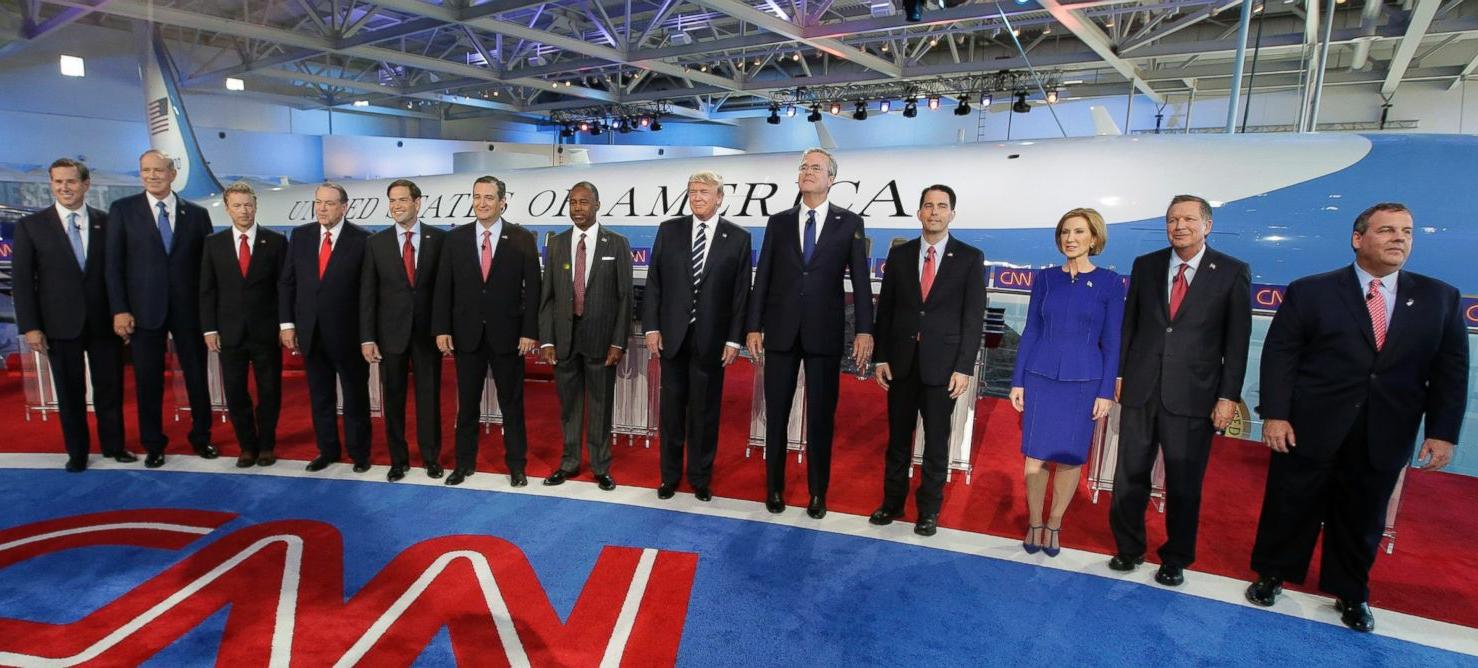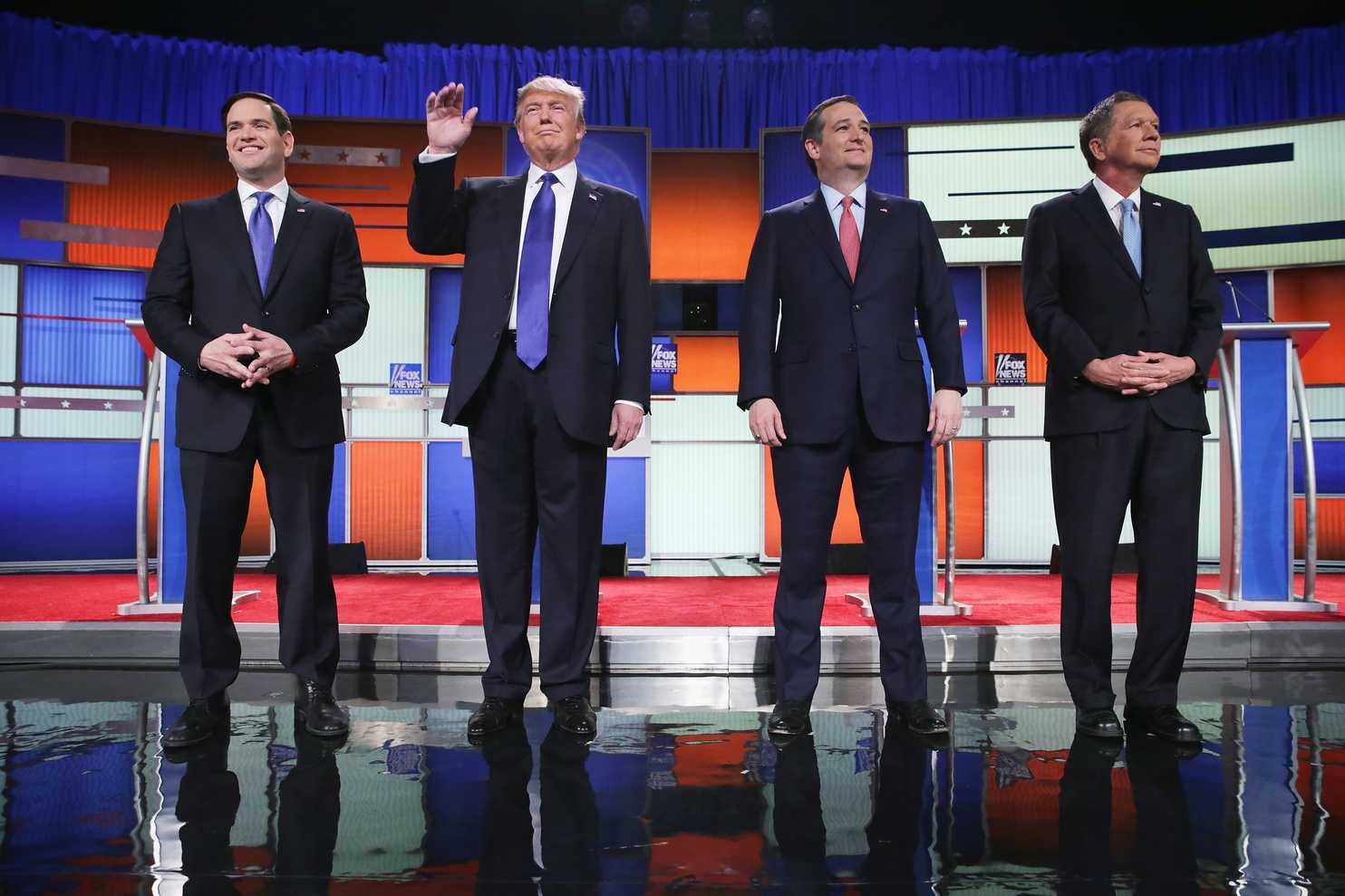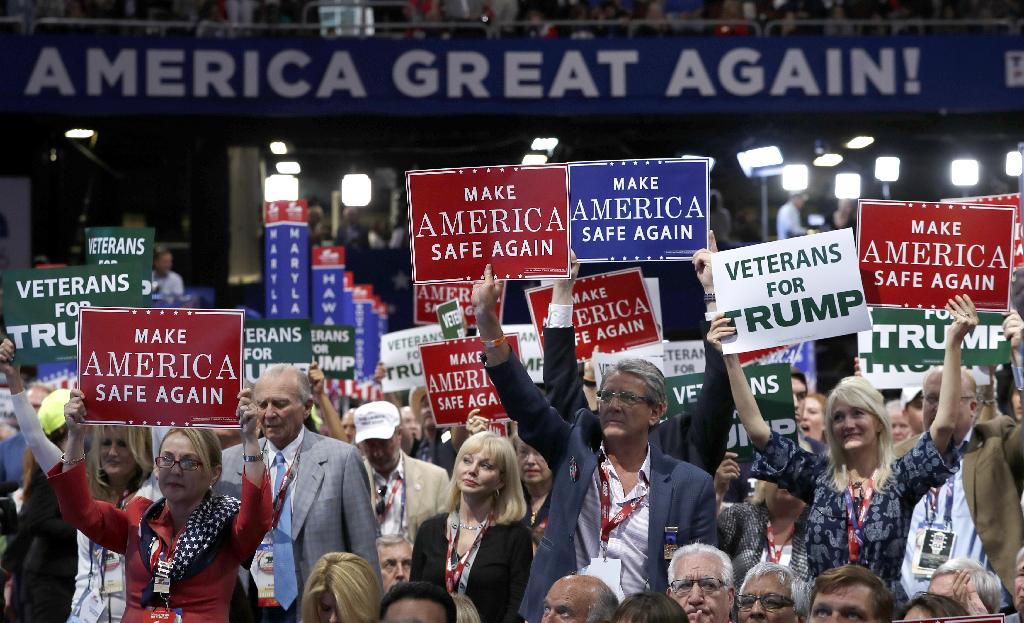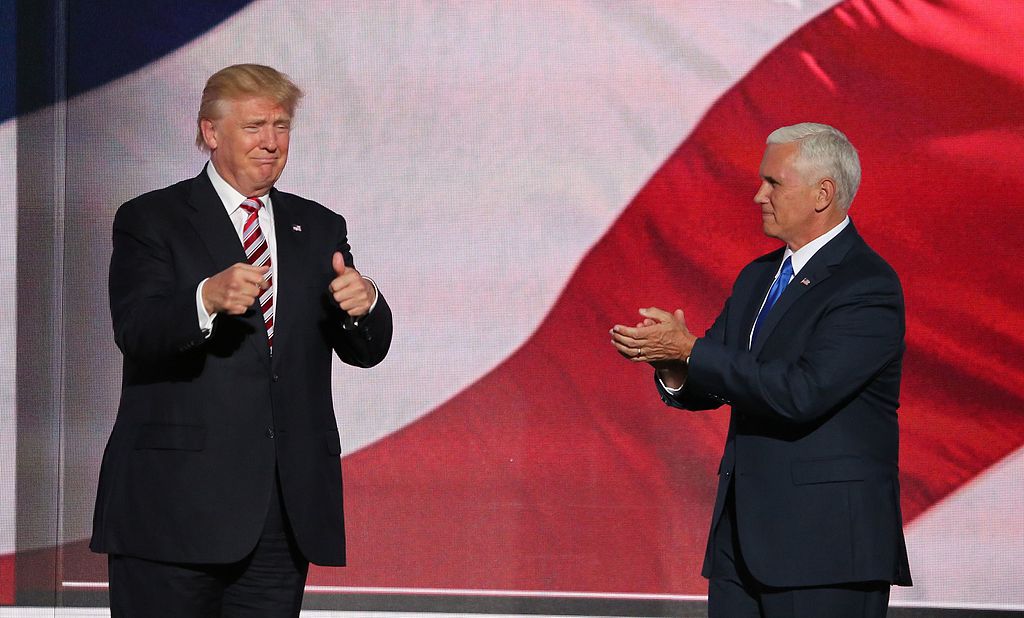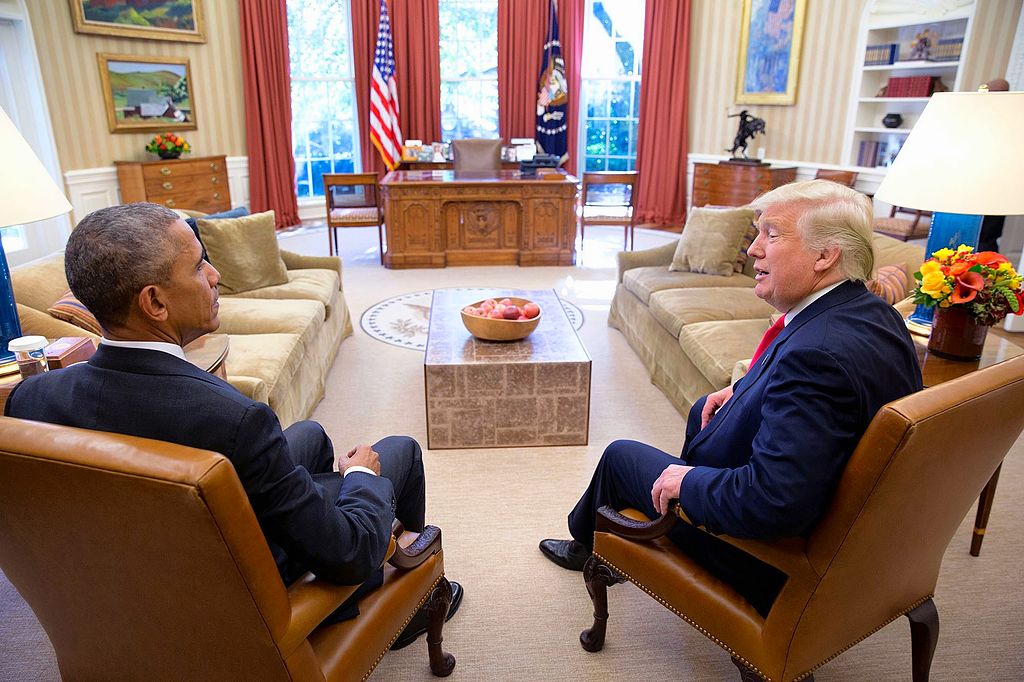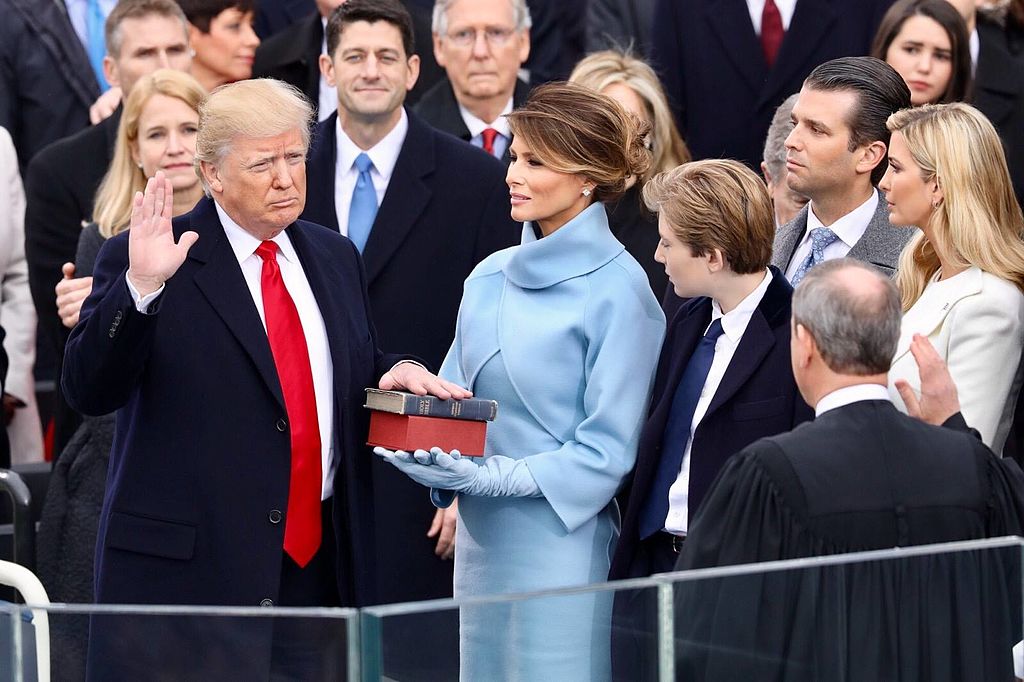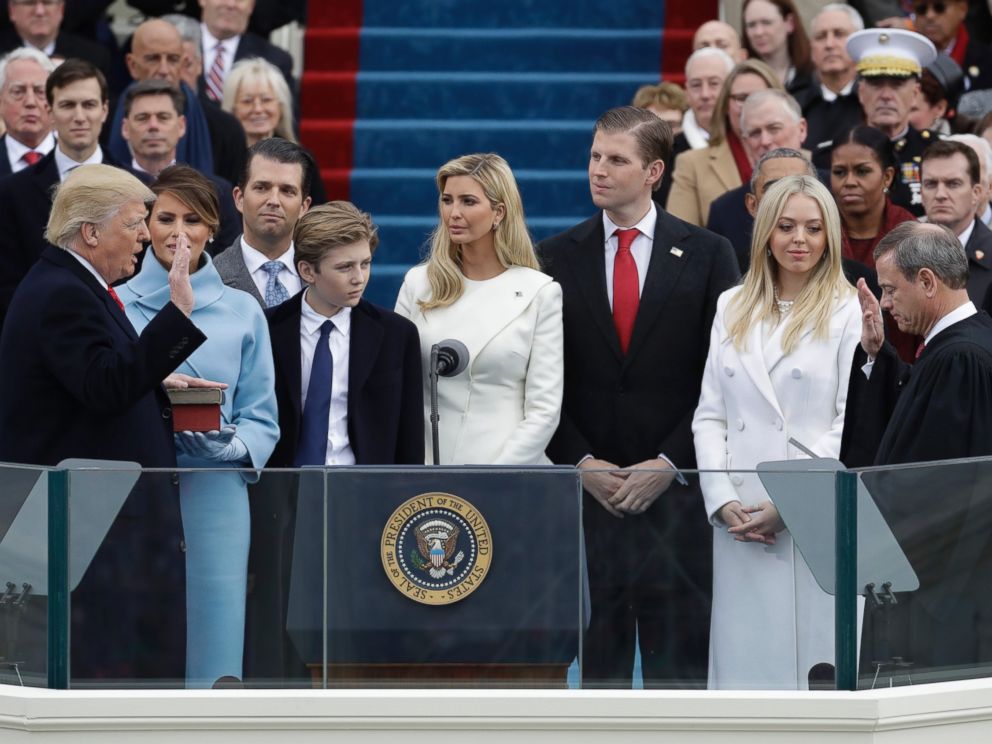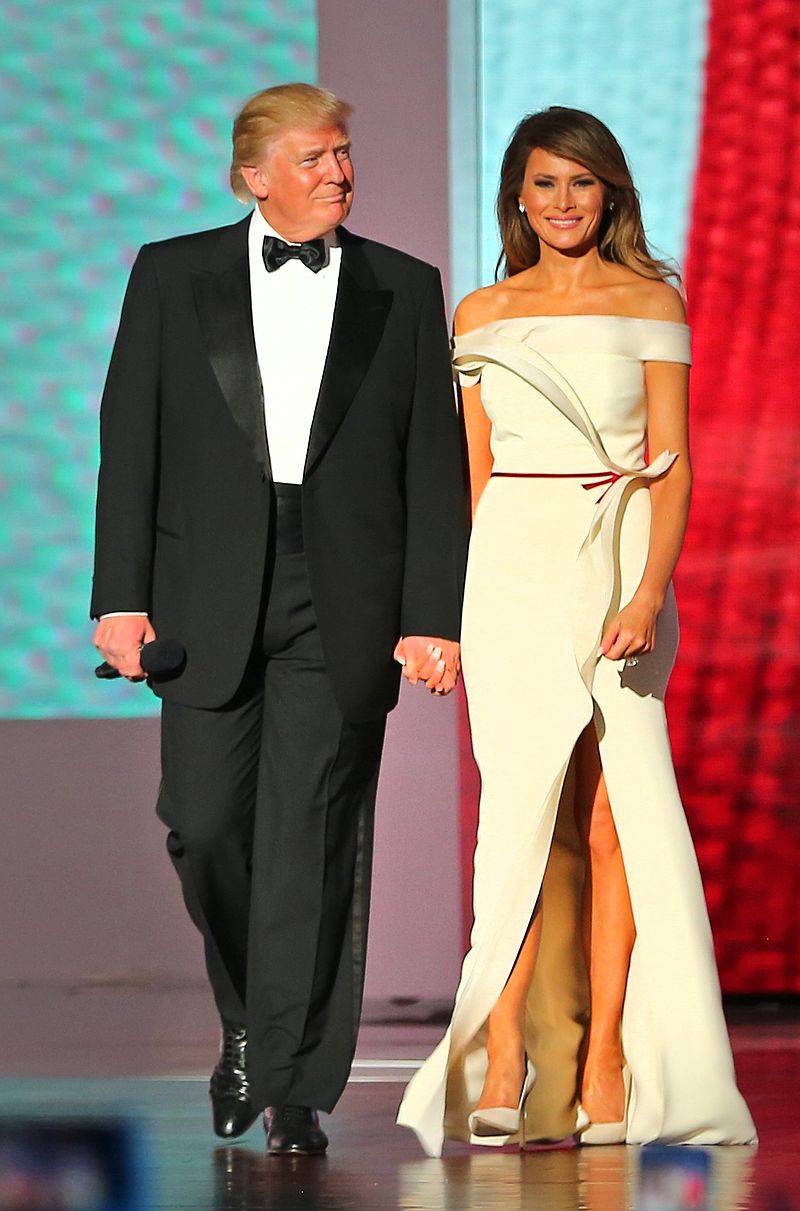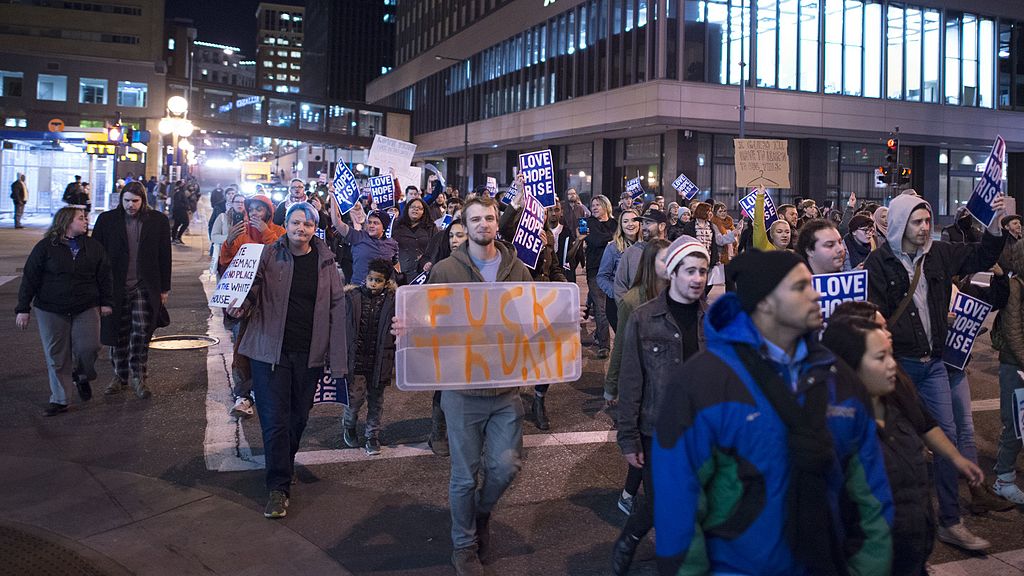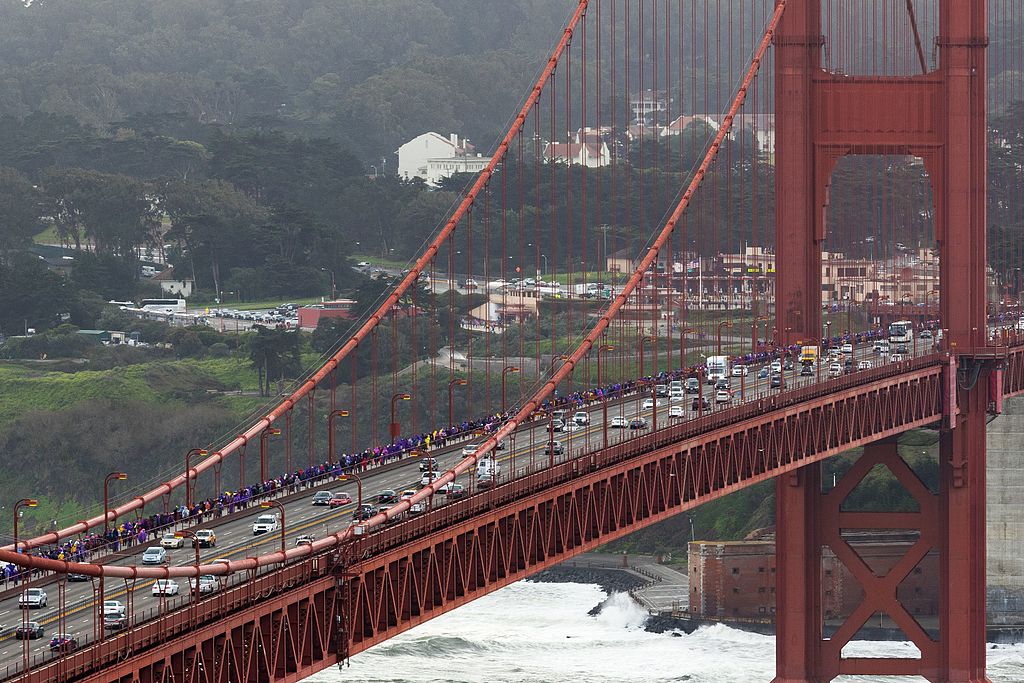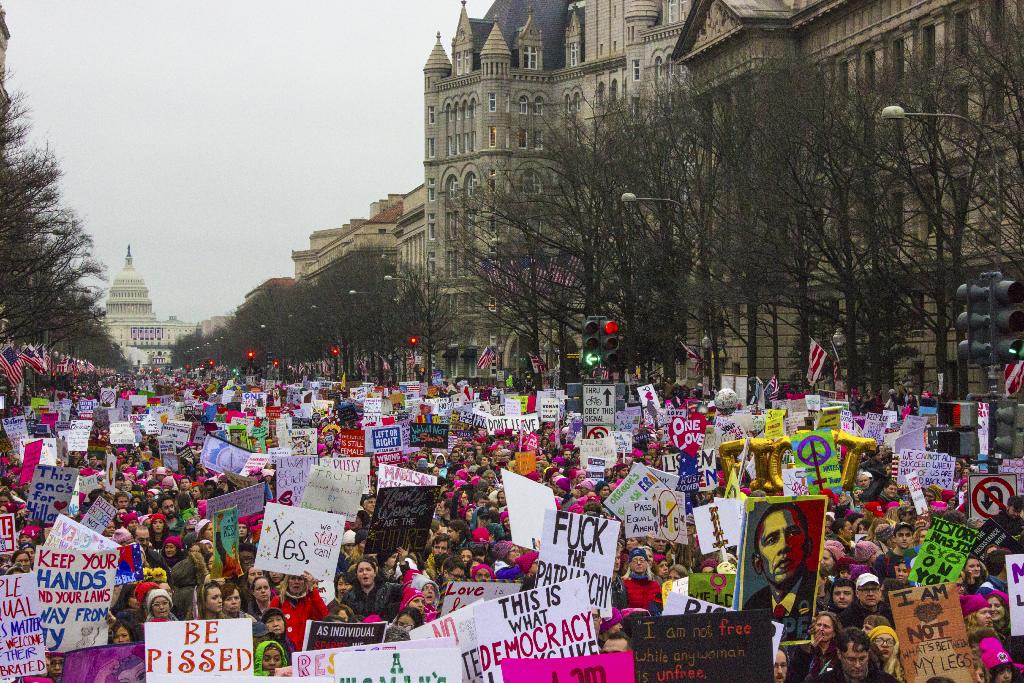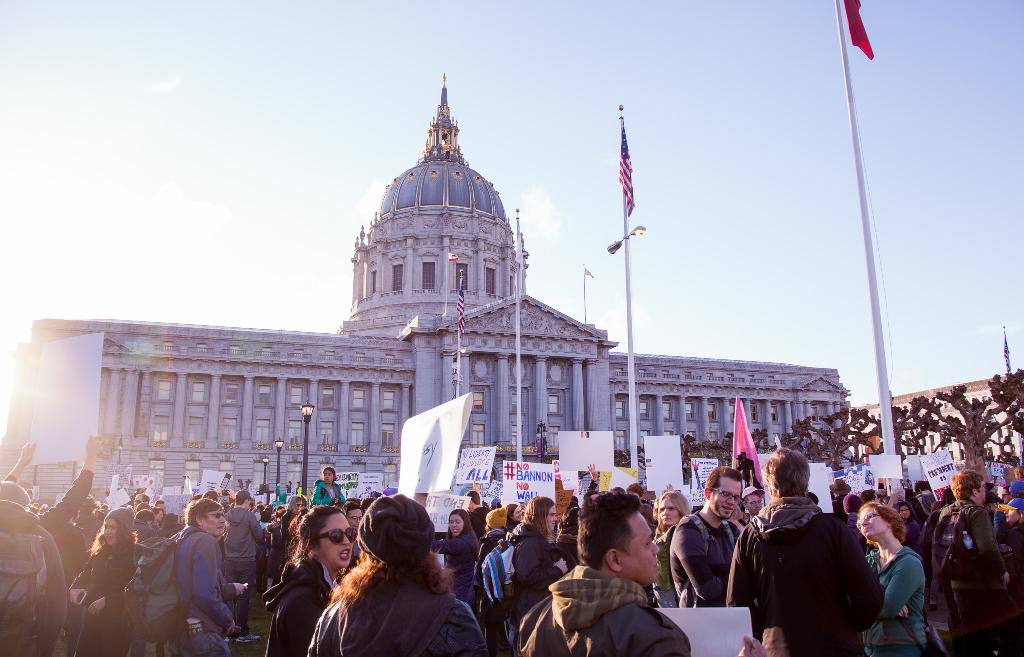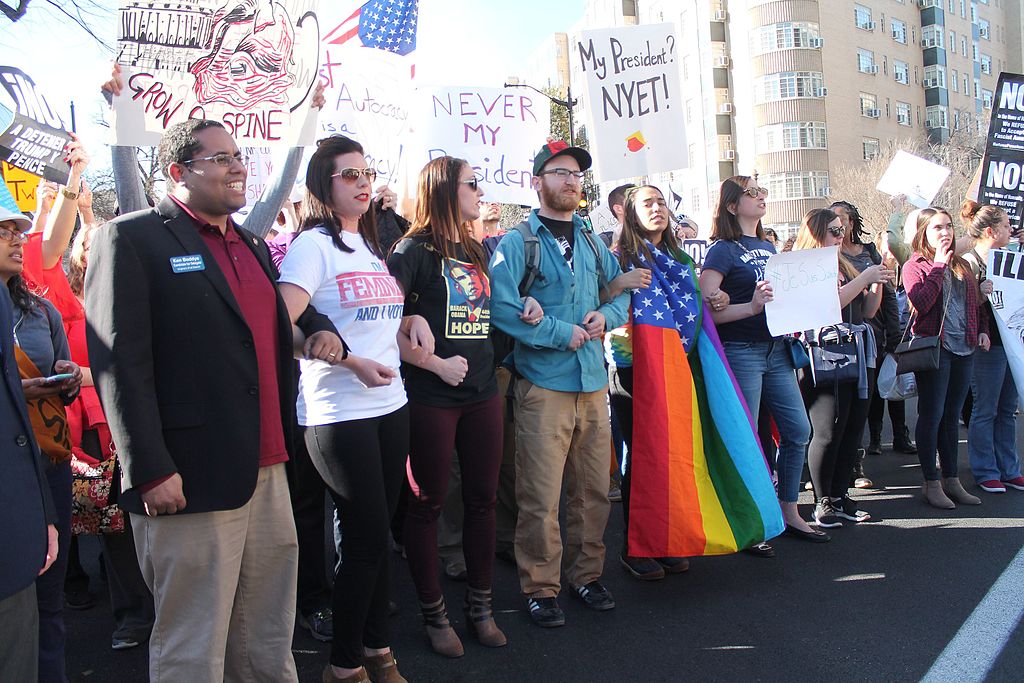28. INTO THE AGE OF TRUMP

THE 2016 ELECTION

THE 2016 ELECTION
 The 2016 race for the US presidency
The 2016 race for the US presidency
 The election – November 2016 ... and
The election – November 2016 ... and
reaction
 The massive "anything-but-Trump"
The massive "anything-but-Trump"
movement across America
The textual material on this webpage is drawn directly from my work
America – The Covenant Nation © 2021, Volume Two, pages 446-451.
THE 2016 RACE FOR THE US PRESIDENCY |
|
The critical role of celebrity status
One thing very noticeable about the 2016 electoral campaign was how much the world of American politics had been taken over by political amateurs ... but amateurs with considerable celebrity status thanks to the omnipresent electronic media, from the television networks to the personal smartphones carried by every "woke" American. The American media had by this time clearly become the kingmakers of America. True, this started with Obama, who acquired the American Presidency back in 2008 with almost no serious amount of national political experience, but with much media attention, not just appearing as a key speaker at the 2004 Democratic National Convention but more importantly through the strong political endorsement given Obama many times by Oprah Winfrey on her widely-viewed television show. From this point on, media attention, not
actual political professionalism built up through years of public
service, would serve frequently in achieving and holding American
public office. This was clearly the case in how the Republican Party chose to select its presidential candidate for the 2016 presidential campaign. By early 2015 some 17 individuals had announced themselves as Republican candidates for the office of the U.S. presidency, and in early August 2015 Fox News hosted not one but two debates, with the more popular candidates speaking at the second debate. Further debates were held monthly and then in the first three months of 2016 two or three debates each month. But the very first of the debates was the most-watched, and set the tone for the subsequent debates, with Donald Trump dominating the proceedings. Although Trump had no experience serving the people in any kind of public office, and was not an experienced debater, his fourteen years serving as TV host (The Apprentice/The Celebrity Apprentice) made him comfortable in front of the cameras – challenging others personally. He was also quite ready to interrupt his fellow debaters in launching demeaning commentaries on them from the sidelines while the others were attempting to deliver their own messages, much in keeping with the central style and famous slogan of his TV program: "You're fired!" Some found this aggressive style extremely "vulgar.'' Others found it "honest." But it certainly kept the cameras focused on Trump. Consequently, one by one, the other Republican candidates dropped out of sight in the running, pushing Trump ahead in the race. Then with his large win in the Super Tuesday primary elections (12 states voting on March 1, 2016), Trump pulled way ahead of his competitors, and then with the even bigger win in the Indiana primary election in early May (2016) the remaining candidates, Senator Ted Cruz of Texas, Senator Marco Rubio of Florida and Governor John Kasich of Ohio were, for all practical purposes, out of the race. Trump at this point was the clear winner in the long Republican Party competition.
Clinton had resigned from her position as head of the State Department back in February of 2013, at that point devoting her energies to directing the Clinton Foundation – focused primarily on developing women's rights globally. But those years also saw her busy fending off Republican efforts to undercut her politically because of the Benghazi fiasco and the discovery of her use of her private email accounts to send confidential messages, in violation of Department of State policy. Basically she held up well under the accusations. At the same time, she was preparing herself for another run at the U.S. Presidency, gathering massive campaign support and hitting the speaker circuit extensively. Her only serious opponent within the Democratic Party was the Vermont Senator, Bernie Sanders, an avowed Socialist with all the political instincts Socialism stands for. Actually, the race was intense and Sanders did surprisingly well, indicating how far America had moved away from its traditional Middle-Class cultural roots.1 Hillary had tremendous support from major corporate donors (such as the billionaire George Soros), as well as Blacks and Hispanics, and of course, women. Sanders' support came from younger, White, and more small-town Americans, as well as the more independent-leaning of Democrats. But in any case, from a very nearly equal start at the beginning of primary season, Clinton began to pull ahead of Sanders in gaining pledged delegates – and arrived at the Democratic National Convention in Philadelphia in July of 2016 with approximately a 20 percent lead in the delegate count, ensuring an easy ride for her to the Democratic Party nomination. Initially in the public opinion polls, Clinton enjoyed a large lead over Trump. But political troubles on the part of both candidates began to impact those numbers. Clinton was hurt by the congressional investigation going on at the time concerning her emails. And Trump was hurt by accusations leveled against him concerning the publishing of tapes in which years earlier he had used sexually explicit comments about some women. Policy differences were discussed at the various televised debates between Clinton and Trump. But scandal seemed to occupy the interest of the media more. Also statements made by Trump, such as his announcement that the wall he intended to build at the border with Mexico to keep out illegals he would get Mexico to pay for, seemed quite ridiculous and offered the press spectacular headlines and editorials, which clearly helped place the vast majority of American media (normally Liberal anyway) in the camp strongly supporting Clinton – and opposing Trump equally strongly. So enthusiastic was the media for Clinton as the next American President, that it was caught completely off guard by the actual results of the election, results that the media was not at all expecting. 1Middle-Class Americans were noted for their strong support of the political idea that success in life is achieved through individual initiative and personal responsibility – rather than on the basis of a dependency on the offerings that larger society "owes" individuals as their personal entitlements, entitlements always paid for by someone else. This "something for nothing" or "everything for free" was viewed by Middle-America as the grandest political deception of all offered by ambitious political demagogues. To Middle-America, such Socialism always leads to a horrible condition of personal dependency on the state for whatever favors come to the people – a very destructive undermining of personal freedom, one which also invariably leads to the economic and spiritual collapse of the community. The unwieldy number of Republicans come to explain themselves at the CNN debate September 2015 By March 3, 2016, at the 11th Republican debate, the number of Republican contenders was down to four: Marco Rubio, Donald Trump, Ted Cruz and John Kasich (with – as usual – Trump dominating the conversation) By the time of the opening of the Republican National Convention in Cleveland on July 18, Trump was clearly the frontrunner Donald Trump and Mike Pence at the Republican National Convention – July 20, 2016 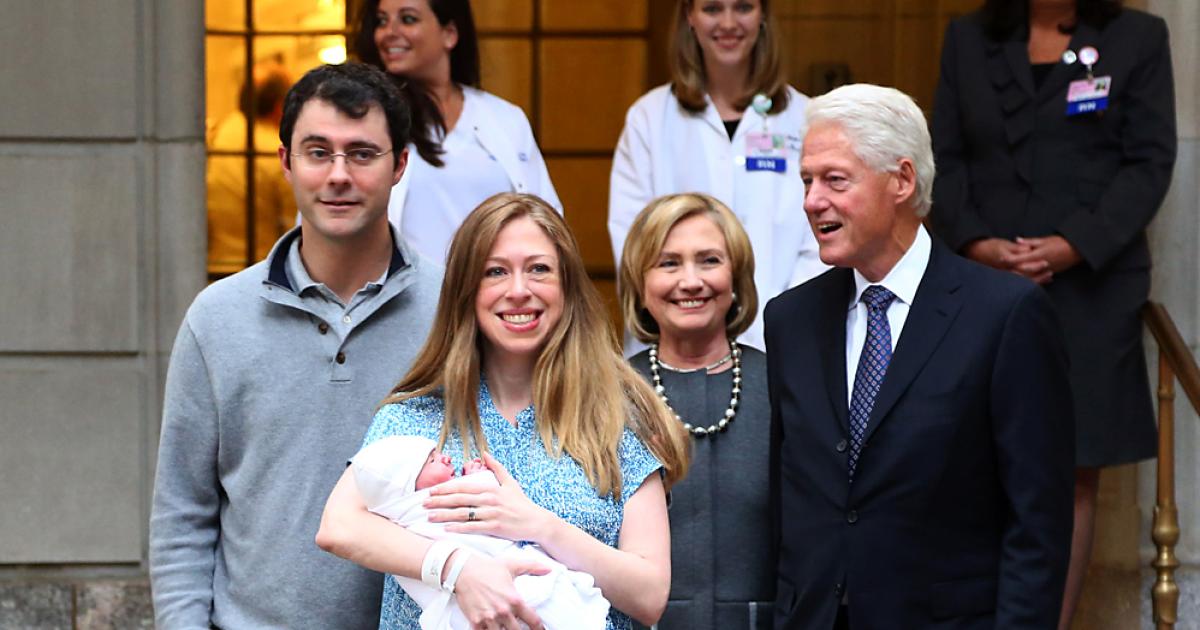 Bill and Hillary Clinton and their daughter Chelsea and her husband Marc Mezvinsky and their daughter Charlotte – 2014
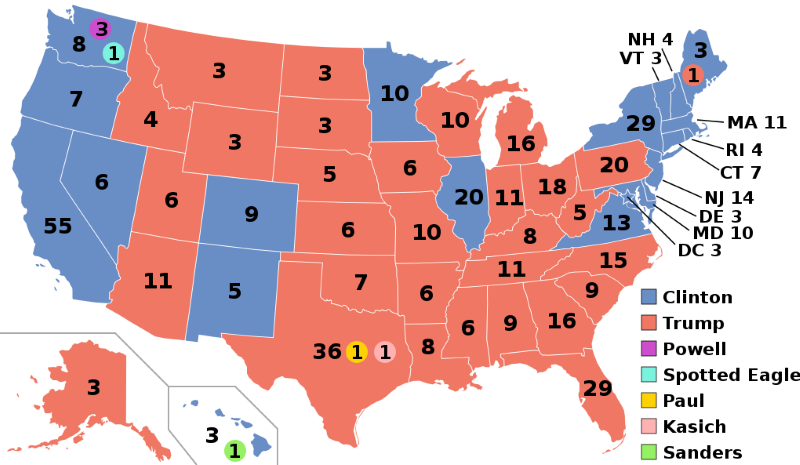 The results of the election – by electoral
votes The results of the election – by electoral
votesPresident Obama and President-Elect Trump meet in the Oval Office two days after the election Trump taking the oath of office, with his wife Melania holding the Bibles on which he pledged his service The swearing-in with Donald Trump, his wife Melania, his son Donald, Jr., his son Barron, his daughter Ivanka, his son Eric, his daughter Tiffany, and Supreme Court Chief Justice John Roberts. Donald and Melania Trump at the LibertyBall on Inauguration Day
Anti-Trump post-election march - St. Paul, Minnesota, November 9 Anti-Trump chain of purple-clad protesters along the Golden Gate Bridge on Inauguration Day The anti-Trump Women's March in Washington, DC on January 21st The anti-Trump protest in front of San Francisco's City Hall on February 4th "Not My Presidents Day" demonstration headed toward the White House – February 20th  Go on to the next section: The Making of Donald Trump
 |
